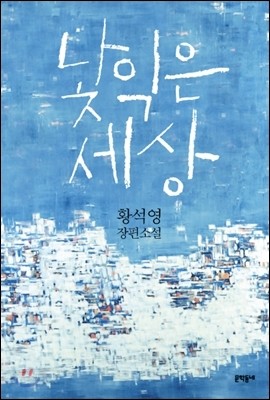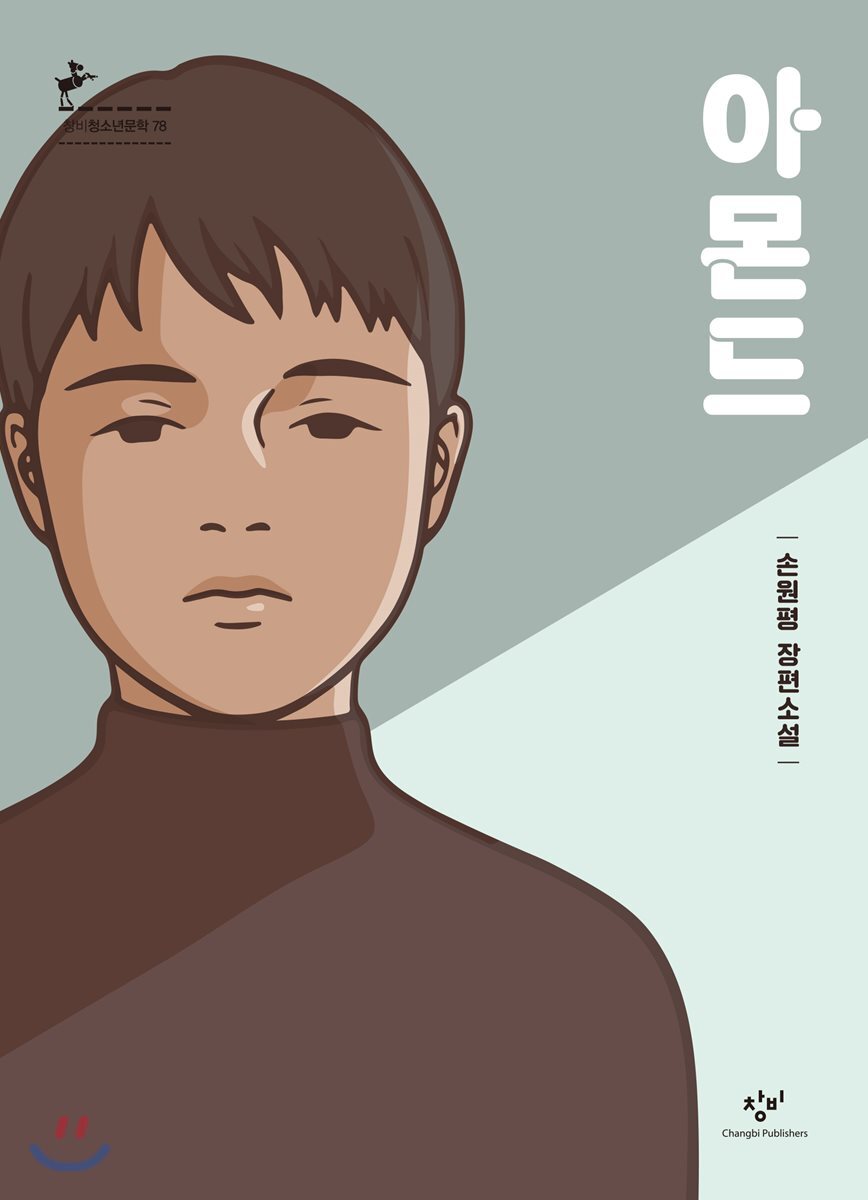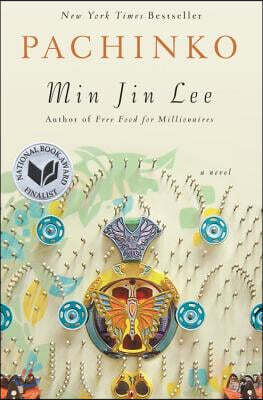-
낯익은 세상
Nachigeun sesang
Korean(한국어) Printed/Published WorkHwang Sok-yong / 황석영 / 2011 / -
This is a novel by Hwang Sok-yong, published in 2011. Through the life of a boy who lives at a landfill site, the author reveals the inner thoughts and emotions of someone who grows up in a harsh environment.
-
소년이 온다
Sonyeoni onda
Korean(한국어) Printed/Published WorkHan Kang / 한강 / 2014 / KDC구분 > literature > Korean Literature > Korean Fiction > 21st century
Introduction Sonyeoni onda (소년이 온다, Human Acts) is a South Korean novel written by Han Kang.1) The novel draws upon the democratization uprising that occurred on May 18, 1980 in Gwangju, Korea. In the novel, one boy’s death provides the impetus for a dimensional look into the Gwangju uprising and the lives of the people in that city. Human Acts won Korea's Manhae Prize for Literature and Italy’s Premio Malaparte. Overview Human Acts was serialized in the literary blog Window (창문) run by Changbi, a publishing house in Korea, from November 2013, to January 2014. Later, Human Acts was published as the author’s sixth full-length novel.2) The novel is inspired by the Gwangju democratic movement that occurred on May 18, 1980,3) a major incident in Korea’s contemporary history. The author, Han Kang, has once remarked that her life was changed when her father showed her an album of photographs from the Gwangju uprising. 4) Han conducted extensive research and reportage before writing a work of fiction based on such an unimaginably violent historical incident.5) At the time of her writing, the author has said there were times she couldn’t write more than three lines a day, due to the emotionally heavy toll of the incident. However, Han herself has said that Human Acts remains her most cherished work. 6) Title The novel’s original title was You, In the Summer to shed light on the fact that spring has passed and summer has come, with the boy no longer alive to welcome the new season. The title was also intended to hint at how cruel summer can be. 7) The ultimate title Human Acts was decided at the last minute. The young protagonist in the novel is merely referred to as “you” throughout the book, and the novel hauntingly makes it seem as if he is traveling across time from the 1980s to the present day. The boy is dead and can no longer be seen, but his presence can be felt each time the people who knew him calls for him. 8) Plot9) Human Acts deals with the May 1980 Gwangju uprising and the death of the young boy Kang Dong-ho. The novel is composed of seven chapters including the final epilogue, with each chapter tracing the passage of time from the incident in the 1980s to the present day. At the same time, the narrative expands to describe the impact that this incident had on other people. The first chapter follows Kang Dong-ho and his circumstances at the time of the May uprising, while introducing the people in his life. The characters that are introduced in this initial chapter later appear as the narrator or central protagonist in the following chapters. The second chapter follows the story of Dong-ho’s friend Jeong-dae, who died in the May uprising. The protagonist in the third chapter is Eun-sook, who worked with Dong-ho to collect the dead bodies after the Gwangju uprising. Eun-sook is living in the mid-1980s and works at a publishing agency. The fourth chapter traces the arc of Kim Jin-su, who was jailed for his involvement in the Gwangju uprising. He had spent time with Dong-ho and Jin-su and was the only boy who survived. Unable to bear his guilt, however, Jin-su takes his own life nearly ten years after the May 18 uprising. The narrator of the fifth chapter is Seon-ju, who suffered terrible sexual torture during the uprising and is working as an activist in the present day. The sixth chapter is a current-day soliloquy by Dong-ho’s mother, while in the epilogue, the author herself appears as the narrator. In this manner, Kang Dong-ho’s death and the confessions and testimonies of the people who remember him compose the framework of the novel. Characters The characters in Human Acts are average citizens. The novel illustrates how these people respond to the sudden tragedy that befell them. 10) Rather than reenacting the historical incident, the author chose to place the perspectives squarely on the people who endured the horrific accident and the trauma they have had to carry since. 11) Themes Human Acts asks fundamental questions about the still-open wounds inflicted by state violence and human brutality. In the book, it is asked, “What does it mean to be human? What should we do, to make sure humans don’t become something?” This question is central to the novel12) and leads to the understanding that survivors must discuss the incident, record it, and remember it to make sure the unfortunate event, where the victims were their own neighbors, our friends, and our family members, will not repeat itself. The most fundamental way to make sure a painful historical event does not repeat itself is to remember what happened. The author herself has said she wants this novel not to expose or accuse, but rather to serve as a testimony and a gesture of mourning. 13) Style Human Acts was written in the author’s characteristically poetic, succinct style. 14) Rather than discussing the heavy, somber ramifications of the Gwangju uprising or using titillating language, Han Kang chose to portray the grief of the individual people in a concise, boiled-down style. To appear authentic, the testimonies are offered individually across different chapters, by different narrators, in different styles, and in different forms. Together, these stories create a nuanced, dimensional look at the Gwangju uprising. 15) To ensure the readers can appreciate the novel in a more deliberate, measured pace, some of the passages have been italicized to slow the readers down. 16) Criticism Both the author and her critics have hailed Human Acts as her most representative work. Although the novel describes an incident familiar to most Korean readers, critics pointed out that the book was able to maintain its pace and tension until the end largely thanks to the power of Han’s writing. 17) Blacklisted (professionals in culture and the arts) 18) During the Park Geun-hye administration, Human Acts was excluded from inclusion into the Sejong Library project for reasons of ideological bias (books featuring keywords such as May 18, North Korea, Kaesong Industrial Complex, Karl Marx, etc. were largely excluded from the same list), and Han Kang was placed on the blacklist of professionals in the culture and the arts. Adaptation May 18 Play in Poland19) Human Acts was adapted for a theatrical production that was staged in Poland in October 2019. This was the first play produced in Europe that deals with the May 18 uprising. The May 18 Memorial Foundation provided materialto inform the play. When the production was first staged in June for a limited four-time run, it was well received for having combined a Western production with Asian aesthetics. Bibliography English, Human Acts, Portobello Books, 2016, Deborah Smith.20) French, Celui qui revient, Le serpent à Plumes, 2016, Jeong Eun-Jin and Jacques Batilliot.21) German, Menschenwerk, aufbau, 2017, Lee Ki-hyang.22) Spanish, Actos Humanos, RATA, 2018, Sunme Yoon.23) Catalan, Actes Humans, RATA, 2018, Alba Cunill.24) Dutch, Mensenwerk, Nijgh & Van Ditmar, 2016, Monique Eggermont and Deborah Smith.25) Swedish, Levande och döda, Natur & Kultur, 2016, Eva Johansson.26) Italian, Atti umani, Adelphi Edizioni, 2017, Milena Zemira Ciccimarra.27) Portuguese, ATOS HUMANOS, Grupo Leya, 2017, Maria do Carmo Figueria.28) Romanian, Disecție, Editura Art, 2018, Iolanda Prodan.29) Czech, Kde kvete tráva, ODEON, 2018, Petra Ben-Ari.30) Hungarian, Nemes Teremtmények, Jelenkor, 2018, Kiss Marcel.31) Norway, Levende og døde, Pax Foriag, 2017, Vivian Evelina Øverås.32) Japanese, 少年が来る, クオン, 2016, 井出俊作.33) Chinese, 少年來了, 漫遊者出版社, 2018, 尹嘉玄. 尹嘉玄.34) Awards Manhae Prize for Literature (2014) 35) Premio Malaparte (2017) 36) Further Reading 1) Han Kang (1970 – ) is a South Korean novelist. She made her debut as a poet in 1993 with Seoleu gyeoul (서울의 겨울, Seoul’s Winter) and four other poems. Han began her career as a novelist when her 1994 novel Bulgeun dat (붉은 닻, The Red Anchor) received an award for literature. Early in her career, Han drew much attention after receiving numerous prizes. One of her main themes is the human body, and rather than publishing populist works that deal with everyday life, Han chooses to write about inconvenient truths and distressing events. Han is also famous for coming from a family of literary-minded people; her father (novelist Han Seung-won), her older brother (novelist Han Dong-lim) and her husband (literary critic Hong Yong-hui) all work in creative writing and literature. With her 2016 book The Vegetarian, Han became the first Korean and the youngest-ever recipient of the Man Booker Prize, and for Human Acts, Han received the 2017 Premio Malaparte. Korean Wikipedia article. “Han Kang (Novelist).” https://ko.wikipedia.org/wiki/한강_(소설가) Namu Wiki article. “Han Kang (Novelist).” https://namu.wiki/w/한강(소설가) YTN News. “Novelist Han Kang, Father, Brother, Husband Are All Writers.” Accessed May 17, 2016. https://news.naver.com/main/read.nhn?mode=LPOD&mid=tvh&oid=052&aid=0000840083 2) Aladin. “Book Summary of Human Acts.” https://www.aladin.co.kr/shop/wproduct.aspx?ItemId=40869703 3) The May 18 Gwangju democratic uprising refers to the events that took place between May 18th to May 27th, 1980, during which numerous citizens of Gwangju who were protesting for democracy were brutally suppressed by the martial law government. Against the backdrop of nationwide protests that had been ongoing since the December 12 incident in 1979, the city of Gwangju was targeted for state-sanctioned violence. Airborne troops were mobilized and countless civilians killed, the horrific facts of which were made known to the world through the German journalist Jürgen Hinzpeter. In 1997, the incident was memorialized as a national commemorative day, and in 2011, documents on the Gwangju uprising were inscribed as a UNESCO Memory of the World. Korean Wikipedia article. “May 18 Gwangju Democratic Movement.” https://ko.wikipedia.org/wiki/5•18_광주_민주화_운동 Namu Wiki article. “May 18 Gwangju Democratic Movement.” https://namu.wiki/w/5.18 민주화운동 Archives of May 18 Democratic Movement. http://www.518archives.go.kr/ 4) Park Gil-ja, “Gwangju in May is a Common Noun Referring to Dignity in the Face of Human Violence,” Women’s Daily, May 18, 2016. http://www.womennews.co.kr/news/articleView.html?idxno=93432 5) Eom Ji-hye, “Han Kang, ‘I Sat at My Desk as if Awaiting Punishment,’” Channel Yes. http://ch.yes24.com/Article/View/25422 6) “My Favorite Work is Human Acts, on the Gwangju Incident,” Hankyoreh, March 20, 2016. http://www.hani.co.kr/arti/culture/book/735877.html Hong Jin-su, “Han Kang and May 18 in Human Acts,” Kyunghyang, May 18, 2016. http://h2.khan.co.kr/201605181049001 Lee Jin-wuk, “Man Booker Prize-Winning Han Kang’s May 18, Human Acts,” No Cut News, May 18, 2016. https://www.nocutnews.co.kr/news/4594687 7) Eom Ji-hye, “Han Kang, ‘I Sat at My Desk as if Awaiting Punishment,’” Channel Yes. http://ch.yes24.com/Article/View/25422 8) Park Gil-ja, “Gwangju in May is a Common Noun Referring to Dignity in the Face of Human Violence,” Women’s Daily, May 18, 2016. http://www.womennews.co.kr/news/articleView.html?idxno=93432 9) Seo Yeong-chae, “Ethics in Literature, Politics in Aesthetics,” Guilt and Shame, Namu Namu, 2017. 10) Hyeon Baek, “Reading Han Kang’s Human Acts,” Gwangju Dream, May 27, 2016. http://www.gjdream.com/v2/simin/view.html?news_type=105&uid=473421 11) Choi Shin-wung, “Caring for Sore Wounds with Compassionate Writing,” Daejeon Ilbo, June 18, 2014. http://www.daejonilbo.com/news/newsitem.asp?pk_no=1122558 Yun Bit-na, “Human Acts,” Readers News, May 26, 2014. http://www.readersnews.com/news/articleView.html?idxno=47737 12) Choi Jae-bong, “May 18, What Must We Do to Prevent Humans from Becoming Something Else,” Hankyoreh, May 25, 2014. http://www.hani.co.kr/arti/culture/book/638900.html Yun Bit-na, “Human Acts,” Readers News, May 26, 2014. http://www.readersnews.com/news/articleView.html?idxno=47737 13) Eom Ji-hye, “Han Kang, ‘I Sat at My Desk as if Awaiting Punishment,’” Channel Yes. http://ch.yes24.com/Article/View/25422 14) Choi Jae-bong, “May 18, What Must We Do to Prevent Humans from Becoming,” Hankyoreh, May 25, 2014. http://www.hani.co.kr/arti/culture/book/638900.html Kim Jun-su, “The Missing Boy Returns, from Gwangju 1980,” Oh My News, June 11, 2014. http://www.ohmynews.com/NWS_Web/View/at_pg.aspx?CNTN_CD=A0002001592 15) Choi Shin-wung, “Caring for Sore Wounds with Compassionate Writing,” Daejeon Ilbo, June 18, 2014. http://www.daejonilbo.com/news/newsitem.asp?pk_no=1122558 16) Jang Seul-gi, “On That Day, They Headed to the Provincial Office to Die,” Media Today, May 18, 2015. http://www.mediatoday.co.kr/news/articleView.html?idxno=123157 17) The tragedy was described in vivid, specific expressions. Although a full-length novel, not one word seemed awkward or out of place. The sentences were carefully arranged, testifying to the author’s intense concentration. Kim I-gyeong, “A Straightforward Perspective on Gwangju’s May,” Weekly Kyunghyang, August 18, 2014. http://weekly.khan.co.kr/khnm.html?mode=view&code=116&artid=201408111611001&pt=nv#csidxa4c0c27a4c4c4e994fa253eaf5820e2 Lim Yae-rim, “May 18 and the Solidarity of Remembrance,” Art Insight, July 4, 2019. https://www.artinsight.co.kr/news/view.php?no=42588 18) Choi Jae-won, “Han Kang, Why Did They Turn Their Backs? The Shocking Revelation,” CBC News Blog, January 12, 2017. https://m.post.naver.com/viewer/postView.nhn?volumeNo=6132439&memberNo=31875496&vType=VERTICAL Lee Yu-jin, “Government Creates Blacklist, Han Kang’s Novels to Undergo Ideological Examination,” Hankyoreh, November 15, 2016. https://news.v.daum.net/v/20161115172604579 Namu Wiki article. “Han Kang (Novelist).” https://bit.ly/2ovhJVT 19) Jeong Dae-ha, “Han Kang’s Human Acts Adapted for the Theater in Poland,” Hankyoreh, July 14, 2019. http://www.hani.co.kr/arti/area/honam/901717.html 20) English translation of Human Acts. https://library.ltikorea.or.kr/node/20230 21) French translation of Human Acts. https://library.ltikorea.or.kr/node/21094 22) German translation of Human Acts. https://library.ltikorea.or.kr/node/31597 23) Spanish translation of Human Acts. https://library.ltikorea.or.kr/node/32228 24) Catalonian translation of Human Acts. https://library.ltikorea.or.kr/node/32227 25) Dutch translation of Human Acts. https://library.ltikorea.or.kr/node/21479 26) Swedish translation of Human Acts. https://library.ltikorea.or.kr/node/30562 27) Italian translation of Human Acts. https://library.ltikorea.or.kr/node/31331 28) Portuguese translation of Human Acts. https://library.ltikorea.or.kr/node/31348 29) Rumanian translation of Human Acts. https://library.ltikorea.or.kr/node/32433 30) Czech translation of Human Acts. https://library.ltikorea.or.kr/node/32550 31) Hungarian translation of Human Acts. https://library.ltikorea.or.kr/node/32592 32) Norwegian translation of Human Acts. https://library.ltikorea.or.kr/node/32669 33) Japanese translation of Human Acts. https://library.ltikorea.or.kr/node/24076 34) Chinese translation of Human Acts. https://library.ltikorea.or.kr/node/31951 35) Noh Tae-yeong, “Han Kang’s Human Acts Wins the 29th Manhae Prize for Literature,” KBS News, August 1, 2014. http://news.kbs.co.kr/news/view.do?ref=A&ncd=2904396 36) Hyeon Yun-gyeong, “Novelist Han Kang, Receives Italy’s Premio Malaparte for Human Acts,” Yonhap News, October 2, 2017. https://www.yna.co.kr/view/AKR20171002048100109?input=1195m Knowledge Channel-e You, in the Summer: Video on Han Kang’s Human Acts http://www.ebs.co.kr/tv/show;jsessionid=xcbNhSZ3bv1wlmdQ7usrtAW210QnG1fAmMTPDbN9kGKxYEjvyumXE9Qgo2f91KTr.enswasp01_servlet_engine2?courseId=BP0PAPB0000000009&stepId=01BP0PAPB0000000009&lectId=10512759 Han Kang’s website. http://www.han-kang.net/ Human Acts book trailer. https://www.aladin.co.kr/shop/wproduct.aspx?ItemId=40869703 Human Acts publisher’s blog (author reading). http://blog.changbi.com/220713579843?Redirect=Log&from=postView
-
아몬드
Amondeu
Korean(한국어) Printed/Published WorkSohn Won-pyung / 손원평 / 2017 / -
This is a novel by Sohn Won-pyung, published in 2017. It won the 10th Changbi Youth Literature Award. The author depicts the process in which a boy who can't feel emotions form relationships with others, understand them, and be changed. The novel tells the story of two isolated boys who have lost their families, how they grow up through friendship and support for each other, and the courage and willpower necessary to create a better world.
-
Pachinko
Pachinko
English(English) Printed/Published WorkLee Min Jin / 이민진 / 2017 / -
2018년 출간된 이민진의 장편소설이다. 2017년 미국에서로 출판되었고 이를 한국어로 번역하여 출간한 것이다. 작품은 '자이니치(재일동포)'의 삶이 지닌 비극과 애환을 다룬 것이다. 일본의 경제적 사회적 편견 속에서 고통받는 이방인으로서의 재일동포들의 삶을 미국이민1.5세대인 작가의 경험을 토대로 소설화했다.
-
죽고 싶지만 떡볶이는 먹고 싶어 2
Jukgo sipjiman tteokbokkineun meokgo sipeo 2
Korean(한국어) Printed/Published WorkBaek Se Hee / 백세희 / 2019 / -
“작은 방에서 홀로 써 내려간 독립출판물 40만이 사랑한 베스트셀러가 되다” 크라우드펀딩과 동네 서점을 거쳐 독자들이 직접 끌어올린 화제의 에세이 “이 정도로 많이 읽힐 책은 아닌 거 같은데…….” 『죽고 싶지만 떡볶이는 먹고 싶어』가 베스트셀러 대열에 올랐을 때 백세희 작가의 반응이다. 상담 내용을 잊어버릴까 봐 녹취를 풀어 쓴 것에서 시작된 글이 작년 한 해 가장 사랑받은 에세이가 될 줄은 아무도 몰랐으니까. 그저 자신과 비슷한 이들에게 조금이나마 도움이 되겠거니 하는 마음으로 혼자 고백하듯 써 내려갔을 뿐이니까. “우울감을 완전히 극복하고 싶은 이들에게 제 책은 그리 좋은 지침서가 아닐지도 몰라요. 처음엔 이렇게 많은 사람이 제 이야기를 읽는다는 게 두려웠어요. 지금은 아무것도 아닌 한 사람의 마음을 속속들이 보여줌으로써 다른 사람들이 자신도 몰랐던 상처를 다독일 수 있게 된다면 그걸로 충분하지 않을까 싶어요.” 2권에는 1권에 마저 담지 못한 내용을 포함해 그 이후에 이어진 14주간의 상담기록이 담겨 있다. 어디에나 있을 작은 개인이 우울을 견디며 강해지는 내밀한 과정을 가감 없이 드러낸다. 겉보기에는 멀쩡하지만 속은 곪아 있는, 지독히 우울하지도 행복하지도 않은 사람들을 위한 책이며, 타인의 시선으로부터 자유롭지 못하고, 불완전하고, 구질구질한 우리 모두의 이야기다.
Original Works
We provide information on Korean literature titles (classical, modern and contemporary) in multiple languages.




![[테이크북] 소년이 온다](http://image.yes24.com/goods/135217042)


![[테이크북] 죽고 싶지만 떡볶이는 먹고 싶어 2](http://image.yes24.com/goods/104129567)